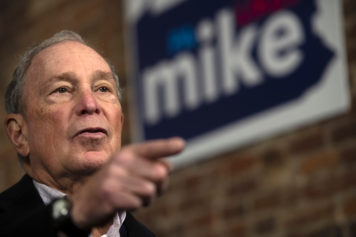Just because a federal judge found New York’s stop-and-frisk law discriminatory and unconstitutional doesn’t mean the practice will stop.
Judge Shira Scheindlin’s ruling addressed a specific program, but it doesn’t affect a series of rulings that have allowed police across the country to stop and search people without cause or reason to suspect wrongdoing.
Furthermore, and perhaps more damning, police are not obligated to inform you of your rights in these stops. You don’t have to cooperate with a line of questioning. In fact, you could walk away and unless an officer can show cause – either evidence or reason to suspect you of a crime – he has no reason to pursue you.
Of course, this is theoretical, because far too many people have suffered at the hands of cops they tried to flee, whether in frustration or fear they won’t get a fair shake from police even though they have done nothing wrong.
In an op-ed piece on Thursday in The New York Times, UCLA law professors Devon W. Carbardo, Cheryl I. Harris and Kimberle W. Crenshaw, who also holds an appointment at Columbia University, wrote that a series of Supreme Court rulings have given police “frighteningly wide discretion to follow, stop, question, frisk and employ excessive force against African-Americans and Latinos who have shown virtually no indication of wrongdoing.”
For example, the professors wrote, an officer could follow someone, stop him and ask for his name, why he is in the neighborhood, what is in a bag he is carrying and to see identification. Constitutionally, the man could, theoretically, just walk away. And because he is free to do so, under the Supreme Court’s interpretation, the Fourth Amendment provision against unreasonable searches does not apply.
These policies smack of segregation, when black people were stopped, questioned and sometimes hauled away by cops for being in the wrong neighborhood at the wrong time – usually a white neighborhood at just about anytime.
In 1983, the high court ruled in Kolender v. Lawson, a California case that challenged the constitutionality of laws that allow police to demand that “loiterers” and “wanderers” provide ID. The justices found that the state law likely compromised the right of Edward Lawson, a black man, to freedom of movement.
The Court did not, however, address whether Lawson’s Fourth Amendment rights were violated.
A narrowly divided U.S. Supreme Court recently ruled 5-4 to uphold a Maryland law that allows police to collect DNA samples without a warrant from arrestees. So even if the person is never charged with a crime, their DNA goes into a crime database to be compared with DNA records from other, unsolved cases.
And despite the furor over racial profiling, in some states laws targeting specific ethnic groups are not only still on the books, but enforceable.
A 1975 Supreme Court decision allowed apparent Mexican ancestry to be taken into consideration in determining whether someone is an undocumented resident. So if someone looks Mexican – as opposed to other Hispanic ancestry – police can stop them with no repercussions and they do regularly in many states.
Even in the case of New York’s stop-and-frisk law, only 6 percent of more than 4 million stops resulted in arrests and another 6 percent resulted in summonses. More than half of those stopped were frisked, but only 1.5 percent uncovered weapons.
Of those stopped, blacks and Latinos made up 83 percent of the cases, although they are just more than half of New York City’s population.
So, the professors concluded, while Scheindlin’s ruling has value, it “leaves in place a higher body of law, Supreme Court doctrine, that continues to expose African Americans and Latinos to surveillance, harassment, violence – and death.”
Jackie Jones, a journalist and journalism educator, is director of the career transformation firm Jones Coaching LLC and author of “Taking Care of the Business of You: 7 Days to Getting Your Career on Track.”


